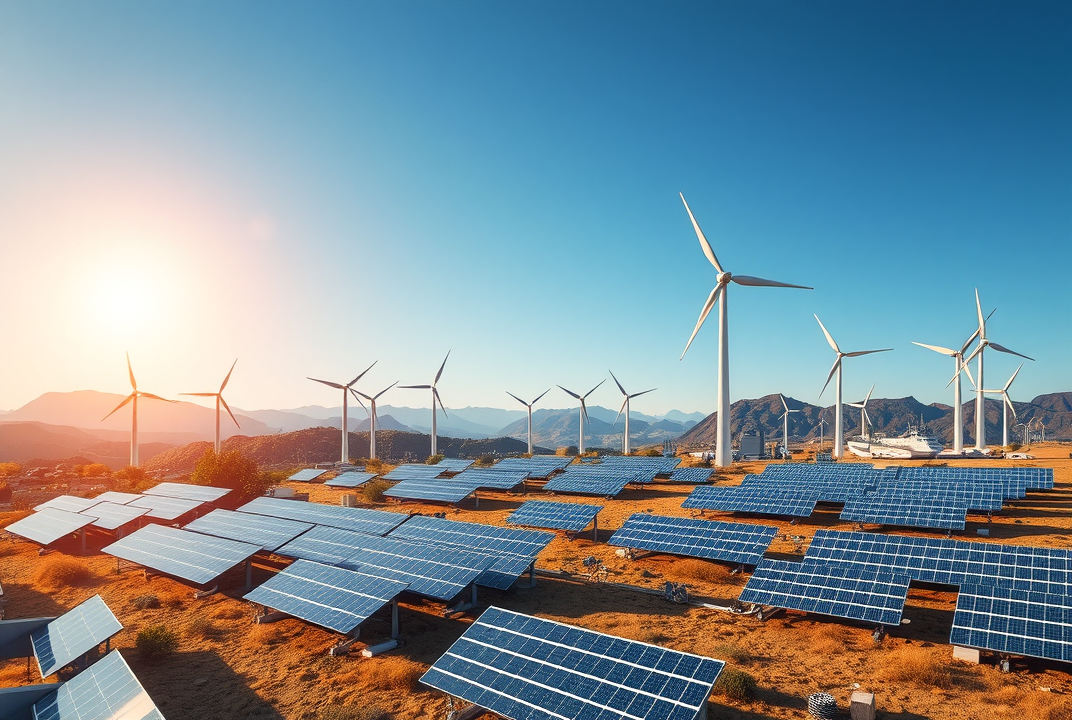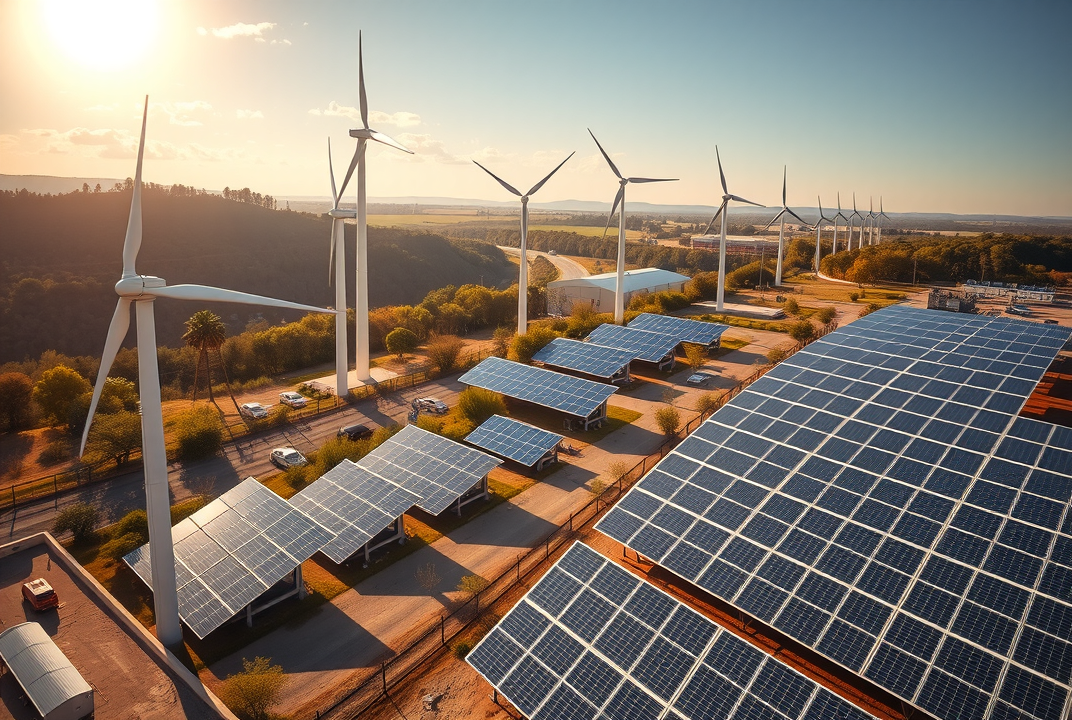How Green Energy is Shaping Global Markets

Introduction
Did you know that renewable energy investments have nearly quadrupled over the past decade? With the effects of climate change becoming more apparent, businesses and governments worldwide are turning towards green energy solutions. But what does this transition mean for global markets, and why should you care?
In this insightful piece, we'll break down the impact of green energy on global markets, using simple terms and explaining why it's relevant for everyone. We'll explore the financial implications, market trends, and how both big corporations and small businesses are navigating this shift. Get ready to understand how green energy is not just powering homes but economies too.
Understanding Green Energy and its Market
What is Green Energy? Green energy, simply put, is renewable energy that comes from natural sources like sunlight, wind, and water. It's called "green" because its production and use have minimal impact on the environment.
The Rise of Green Energy The increase in green energy usage is driven by environmental concerns and technological advancements. Countries and companies are eager to reduce their carbon footprint, making green energy more attractive.
Green Energy Market Growth The market for green energy has experienced substantial growth. Innovations are making renewable energy more accessible and affordable. This growth is not just happening in developed countries but also in emerging markets across Asia and Africa.
Economic Effects of Green Energy
Job Creation One of the most direct impacts of green energy is its capacity to generate employment. Solar and wind energy projects require a significant workforce for installation, maintenance, and management.
Energy Costs While initial investments in green energy can be high, the long-term savings are noteworthy. Using renewable resources reduces dependency on imported fuels, thereby stabilizing energy prices.
Influence on Traditional Markets The rise of green energy is pushing traditional energy markets, like coal and oil, to rethink their strategies. As green energy becomes more prevalent, traditional energy companies are either adapting or risking obsolescence.
Impact on Global Trade
Export Opportunities Countries investing in renewable technologies can develop export markets for green energy technology and expertise. This can lead to new trade partnerships and economic growth.
Global Competition As more nations embrace green energy, the competitive landscape is changing. Countries are racing to become leaders in green technology, creating a dynamic global market.
Shifts in Energy Dependency Green energy allows countries to become more energy independent, reducing reliance on geopolitical hotspots. This leads to more stable economies and less volatility in energy prices.
Regional Impacts: Case Studies
Europe: A Leader in Green Energy Europe has set aggressive targets to reduce carbon emissions, turning to wind and solar power. Countries like Germany and Denmark are leading the charge, setting examples for others.
Asia: Rapid Expansion China and India are making substantial investments in solar energy. This trend is not only helping the environment but also boosting their economies.
Africa: Untapped Potential Africa's natural resources present a huge opportunity for renewable energy. With growing investments, the continent could become a powerhouse in green energy production.
Challenges and Considerations
Infrastructure Needs Switching to green energy requires significant changes in energy infrastructure. From the grid systems to storage solutions, these changes are essential yet challenging.
Policy and Regulation Governments play a critical role in facilitating the green energy transition. Supportive policies and regulations can encourage investment and innovation.
Balancing Act with Traditional Energy While green energy is growing, the transition must balance current energy needs and realities. This means a gradual shift while ensuring traditional energy sources continue serving until fully replaced.
Conclusion
Green energy's influence on global markets is not just a buzzword but a transformative force. By embracing renewable energy, countries can foster economic growth, enhance job creation, and stabilize energy prices.
As individuals, understanding these changes offers insight into the future of our economies. Whether you're a business owner or simply curious, green energy's impact is broad-reaching, affecting everything from your daily power use to economic trends. Now's the time to get informed and possibly involved.


